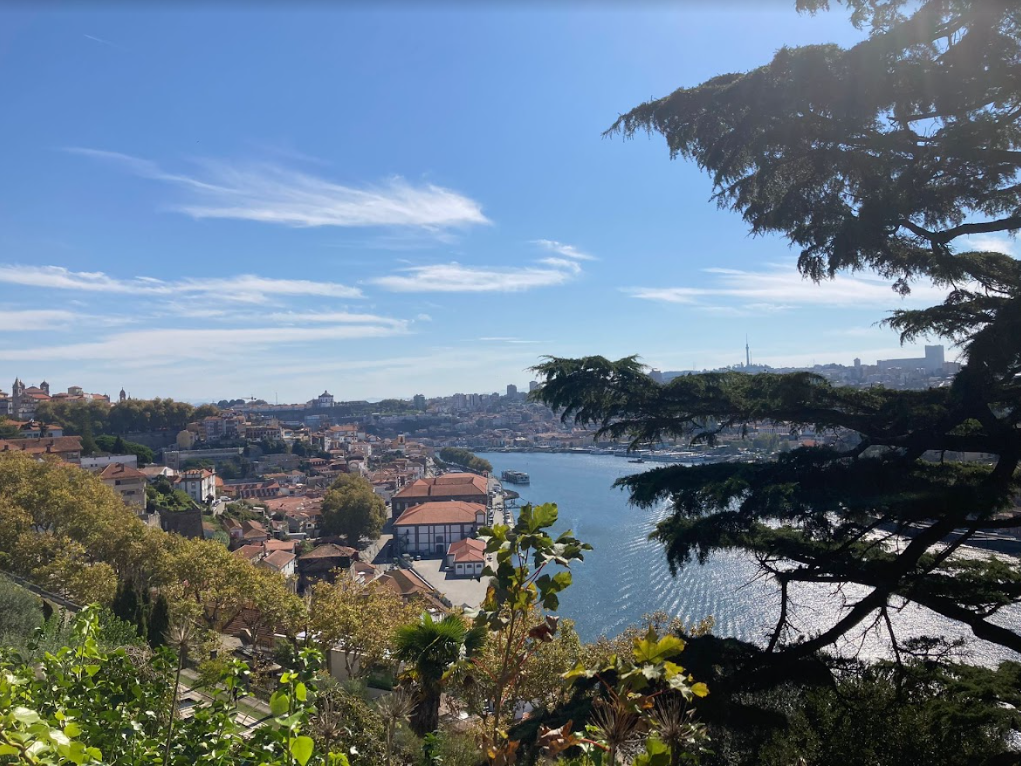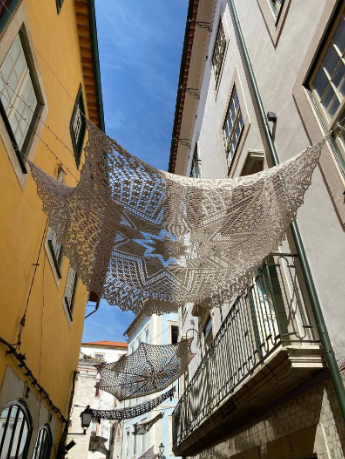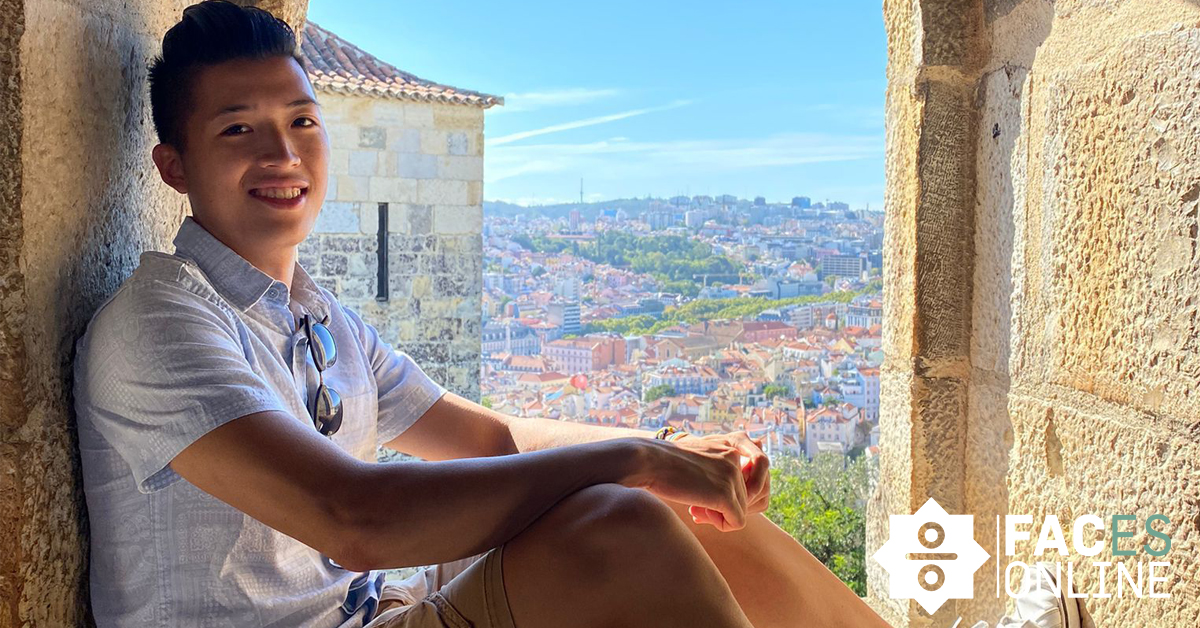For the Dutch version, click here.
After going on an exchange to Lisbon during his bachelor International Business Administration (IBA), Phi Huynh decided to make up for this experience during his master Accountancy. Wout talked to Phi about what it’s like to study in Lisbon, what great things he experienced, and what his advice is for future students on going on an exchange.
Can you briefly introduce yourself?
My name is Phi Huynh, I am from Nieuwegein and I studied International Business Administration (IBA) in Tilburg. At the moment I am following the master Accountancy. Since the beginning of my studies I have been active at Asset | Accounting and Finance.
How did you decide to study for six months in Lisbon?
In IBA, it is quite normal to go on an exchange. However, at that time it was cancelled due to corona. I decided to stay in Europe because I have been to many places outside Europe. However, I have not been to southern Europe yet, so I thought it would be nice to study there. I could also go to Italy and Greece, but in the end I chose Lisbon and I didn’t change my choice after it was initially cancelled due to corona.
What program and subjects did you take there?
I took electives from the master’s in Business Administration. During a master exchange, compared to going abroad during your bachelor, you don’t necessarily have to take courses in your field of study. So I did not take Accountancy courses in Lisbon, also because Accountancy at the university in Lisbon is very basic. In total I took 8 courses, including digital transformation, marketing and strategy. I took four courses per trimester. A trimester is the same as a block at our university. The first semester you have two trimesters and the second half of the study you only have one of them because of the summer period.
Was studying in Lisbon comparable to studying in Tilburg?
It was different. In Lisbon, you had to attend every course. For example, I wouldn’t have taken some courses if I didn’t have the obligation to do so. Participation counted for a lot. The study was smaller than in Tilburg. It was very well organized at the university (Universidade Católica Portuguesa) where I studied, which is highly regarded. At other universities, for example, it was less well organized. I even heard stories from other students who had to ask the professor if they could register for the course.

I had hybrid education in my semester in Lisbon. The work groups were physical. In addition, I often had full class days, as all courses were scheduled in one day. Also, each subject had a final exam, but in most subjects the assignment you had to make counted for a lot. The exams were open book tests that you were allowed to use the laptop for. However, it was not the case that you could discuss and look everything up on the Internet. You could not work together and they checked that you were not on any other pages besides the lecture notes.
“Punctually at 5 o’clock the counter closed, even though there were still lines of people waiting”
What differences did you notice in the way of life between the Netherlands and Portugal?
Portugal is quite bureaucratic. For the clubs I needed a negative test certificate. In addition, I had an OV pass from the university. All foreign students could go to two specific metro stations for this pass to show that you were studying at the university. There you had to fill out all kinds of documents. I was lucky that I could already speak a little Portuguese. Other students had more difficulty because they did not speak the language. At 5 o’clock sharp the counter was closed, even though there was still a queue of people. Testing for corona also took a long time, but luckily all non-Portuguese could test for free.
What did you miss most about home during your exchange? And what do you miss about Lisbon now that you’re back in the Netherlands?
So during my exchange, I especially missed the efficiency of the Netherlands. What I did like about Portugal was that the people there were very flexible when it came to planning things. In the Netherlands, you often have to make a date first. In Portugal, it was much easier to arrange something. In addition, everything was new in Portugal because of the unfamiliar surroundings and the many new things you do, which is of course less the case in the Netherlands.
What is the coolest thing you did in on exchange?
I have made very nice trips. I’ve visited several cities, such as Seville, but I’ve also been to islands like Madeira and the Azores to enjoy the nature. Here I hiked in many cool areas, but what I remember most is abseiling from a waterfall.
Do you still talk to the people you met there?
Yes, I do! Especially the Dutch, most of whom still study in Tilburg. We do an activity together every two weeks. During King’s Day, even fellow students from Belgium, Germany and America came to Tilburg to celebrate this Dutch holiday with us. In September we are all going to Milan, and a Polish friend was also here during my house party.
What did you have to take into account financially? Did you get a scholarship during your exchange in Portugal?
Because I studied in Lisbon I got the Erasmus scholarship. This scholarship was also the motivation for me to pass all my courses. It is the case that if you do your exchange during your bachelor you have to pass it. During your master you do it on top of the program. There is less pressure, but to get the Erasmus scholarship it is mandatory that you obtain at least 24 points. 
In addition, the general costs in Lisbon were not too bad. Lisbon is the most expensive city in Portugal, but I still found it quite cheap when I compare it to the Netherlands.
Do you have any tips for other students who want to go on an exchange?
If you didn’t go on an exchange during your bachelor’s, see if there is a possibility to go on an exchange during your master’s. You are probably still very young and if you don’t really want to work yet, this is the ideal opportunity. I know a lot of people who are hesitating between an exchange or just travelling. If you still want a student life I would choose an exchange.
In addition, many people are afraid of going into the unknown. A place you don’t know, strange people and being completely on your own. My tip: take the challenge, because this applies to everyone. For example, I joined two clubs and attended a lot of events. I did so many things in a few months that I wouldn’t have wanted to miss. And the step becomes less big if you learn the language of the country you are going to.
















